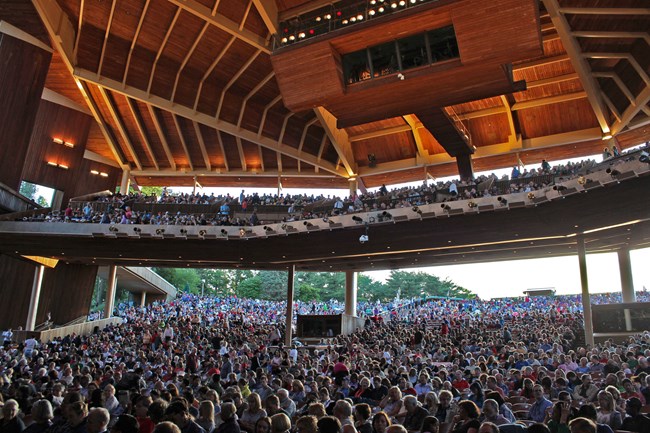Theater PersonnelProduction Manager – This role acts as the general manager for a show. Before the artist arrives at the venue, the production manager works with the artist’s production team to handle the artist’s needs, in relation to the theater’s capabilities. Once the show needs are agreeable, (personnel, show times, length and opening acts) the production manager then works with the theater staff to ensure these needs are met. The production manager is also in charge of the theater crew on show day, and acts as the middle man for house staff and road crews.
On the day of a show, the local crew of stage hands along with the incoming road crew will unload all trucks and set up the show. At this point, the road crew takes near-complete control of the set up. The local crew understands the capabilities of the theater and works with the road crew to get the show set the way the artist would like to have it. During the show, the local crew is there to assist the road crew with anything they may need. This can include operating followspot lights, audio consoles, fly rail, handling props, moving gear to and from the stage, and adjusting stage/house lighting as needed. After the show, both crews work together to wrap up and load all of the artist’s equipment, sets, props, etc. back into the trucks. Director - This role is responsible for the overall artistic vision of a production.
Typical Performance Day Schedule9 a.m. - Artist road crew arrives; gains access to dressing rooms and catering services. 10 a.m. - 2 p.m. - First call
3 - 6 p.m. - Second call
7:30 p.m. - Half hour call (or show call)

NPS Photo 9 p.m. – Intermission 9:20 p.m. - Act II 10:18 p.m. - Curtain call (bows) 10:20 p.m. – Encore 10:27 p.m. – End of show 10:30 p.m. – Crew starts the load out process. 11:48 p.m. – Load out is completed. The artist and their road crew depart the Filene Center, off to the next location of their tour. Open Transcript Open Descriptive Transcript TranscriptNo audio
Descriptive TranscriptA timelapse of stage setup for an orchestra show. The fire curtain is lifted from the stage revealing stagehands working. Crew build a screen. Screen is lifted above the stage. Crew take out wooden asymmetrical shaped ceiling pieces. Dozens of chairs are brought out. large wooden rectangular pieces of the orchestra shell are brought on stage, raised, and placed in their position above the stage using chain motors. Screen drops. The walls of the orchestra shell are moved onto the stage and placed into position creating a 3 walled room. A crew member uses lift to make final adjustments on the ceiling of the orchestra shell. Crew begins to align the chairs on the stage forming a semicircle for the orchestra area.
Visit our keyboard shortcuts docs for details
Time-lapse of three-hour setup of the Filene Center stage for the July 27, 2018 performance of Bernstein at 100. |
Last updated: May 16, 2023
